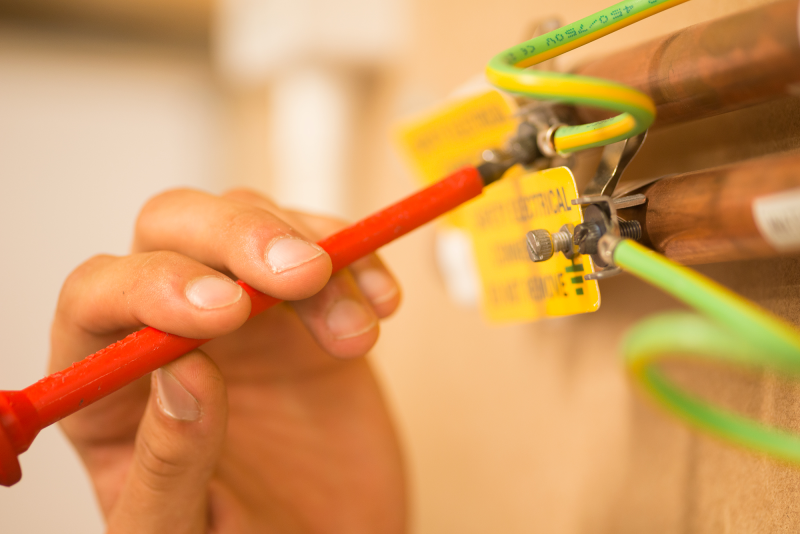 EC4U has launched a brand new guide exclusively for both landlords and tenants, to highlight the importance of ensuring electrical safety standards are being met in privately rented homes. This online guide, which is free to view and download via EC4U’s dedicated website, clearly defines the responsibilities of both the landlord and the tenant, along with a checklist for tenants to follow when moving into a new property.
EC4U has launched a brand new guide exclusively for both landlords and tenants, to highlight the importance of ensuring electrical safety standards are being met in privately rented homes. This online guide, which is free to view and download via EC4U’s dedicated website, clearly defines the responsibilities of both the landlord and the tenant, along with a checklist for tenants to follow when moving into a new property.
EC4U’s ‘Electrical Safety Guide for Landlords and Tenants’ provides information and advice on how to ensure electrical safety measures within the properties are consistent and comply with up-to-date regulations. The guide reveals the number of people living in rented housing over the last ten years has doubled to 4.4 million, with 1.7 private renters reporting electrical concerns that were not dealt with properly.
As the private rented sector increasingly provides a more affordable housing option in the UK, it is imperative both landlords and tenants know where their responsibilities lie in ensuring a safe home, and that these standards for safety are being maintained.
”Not only are the consequences for not abiding by current safety regulations costly and serious for landlords, but the results can be tragic for tenants,” comments Nigel Best, Managing Director EC4U. “Over 500,000 children are currently living in category 1 hazard households (houses deemed as serious hazard zones within the Housing Health and Safety Rating System*), whilst 440,000 rental homes do not have smoke alarms, leaving the inhabitants four times more susceptible to dying in a house fire. We need to get serious about the safety within privately rented housing.”
As of 1st October 2015, smoke alarms are now compulsory for landlords to have installed on each level of the property. In addition, a carbon monoxide alarm should be installed wherever a solid fuel appliance is located within the property. Supported by England Fire and Rescue, the move has been taken to reduce the 26 deaths and 670 injuries per year.
Scotland has already taken measures to ensure safety by making it a legal requirement for landlords to carry out inspections with a qualified electrician, to certify the electrical credentials of the property.
”We need to be doing the same in England,” comments Nigel Best. “There are two main safety checks already in place that landlords can and should carry out: an Electrical Installation Condition Report (EICR), alongside a fully registered electrician, and a check to ensure there is a functioning Residual Current Device (RCD) fitted within the property.”
This important guide has been designed to remind landlords of their duty of responsibility to ensure the safety of their tenants, and also to educate tenants on the minimum safety measures they are entitled to when renting a property.
For more information on EC4U, its training courses, or to view the Electrical Safety Guide for Landlords and Tenants, please visit the website.

